
PatrikStedrak/iStock/Getty Images
Aloe vera juice is derived from the succulent aloe barbadensis plant and it has long been touted as a “miracle healing plant.” Prickly pear, which is also referred to as nopal, is derived from a needle bearing cactus and it has been used for thousands of years by Mexican Indian cultures for nutritional and health benefits. Both can be applied externally and taken internally for a variety of similar and different health promoting purposes.
Aloe Benefits
The gel in the leaves of the aloe plant contains many healing substances. Aloe has antibiotic, anti-bacterial and anti-fungal properties and can therefore help to prevent and treat infections. According to Elson M. Hass, M.D., in his book “Staying Healthy with Nutrition,” aloe is also a powerful immune booster and a daily dose of aloe vera gel may help to slow down the aging process. Dr. Hass explains that aloe vera is a potent antioxidant that helps to scavenge free radicals and free radicals are widely known as the number one contributor to aging. In addition, Indian Child website states that drinking aloe vera stimulates the production of collagen and elastin, both of which help to keep the skin supple and reduce wrinkling.
Prickly Pear Benefits
Similar to aloe vera, prickly pear, which is also referred to as cactus juice, has antiviral, anti-inflammatory and antioxidant properties. Prickly pear is especially useful at preventing oxidative damage in the blood and a study cited in the August 2004 edition of “Journal of Clinical Nutrition” found that prickly pear was able to reduce free radical levels in the blood more effectively then vitamin C. According to “Nursing Herbal remedies Handbook,” prickly pear extracts can help to protect neurons in the brain from damage and lower the unhealthy low-density lipoprotein, or “LDL” cholesterol levels. It may also help to lower blood glucose levels and has been traditionally used as a diabetic aid.
Shared Benefits of Internal Use
Both aloe vera juice and prickly pear promote gastrointestinal health and work as digestive system tonics. Aloe vera and prickly pear supplements can both help to treat and prevent heartburn, gastric ulcers, colitis, hemorrhoids and irritable bowel syndrome. Aloe vera is considered useful for the treatment of constipation, while prickly pear is more often used for the treatment of diarrhea.
Shared Topical Benefits
Topically applied aloe vera and prickly pear is soothing, and can be used to enhance skin healing, reduce inflammation, and relieve redness and itching. Applying these juices topically can hasten wound healing, and help to treat burns and blisters including those caused by the sun; as well as acne, psoriasis and eczema. Topical prickly pear has the additional benefit of treating insect bites, rashes and hemorrhoids. Despite the safety record of aloe vera and prickly pear, many of their uses are based on anecdotal evidence and more scientific research needs to be done to confirm the efficacy of the claims. As with any supplement, talk to your health care practitioner before taking aloe vera or prickly pear orally.
Related Articles

The Use of Neem Juice in Skin Care as ...
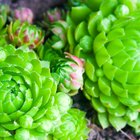
Plants That Heal Wounds
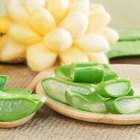
What Is Aloe Good For?

Aloe Vera Gel As a Wrinkle Reducer
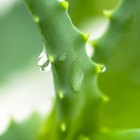
Aloe Ferox Benefits

Chasteberry for Acne
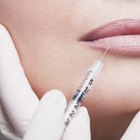
How to Treat Hematoma & Swelling After ...
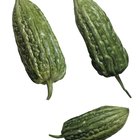
Bitter Melon for Acne
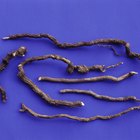
Benefits of Indian Sarsaparilla

Chamomile & Aloe Skin Care
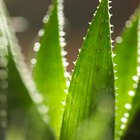
Does Aloe Vera Juice Treat Skin Cancer?

What Are the Benefits of Ashwagandha in ...

Nutrition in Barley Grass

Chinese Remedies for Lines & Wrinkles

List of Retinoids

The Benefits of Castor Oil Packs
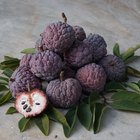
What Are the Health Benefits of ...

What Does Kigelia Fruit Extract Do for ...
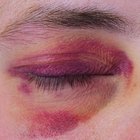
Bromelain & Bruising
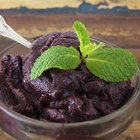
Acai Berry & Acne
References
- “Staying Healthy With Nutrition”; Elson Haas, M.D.; 2006
- Journal of Nutrition: Medicinal Use Of The Latin Food Staple Nopales: The Prickly Pear Cactus
- “Nursing Herbal Medicine Handbook;” Lippincott Williams and Wilkins; 2005
- Indian Child: Health benefits of aloe vera
Writer Bio
Megan Ashton began writing professionally in 2010. When she isn’t writing, she works with clients as the owner of Total Health & Hypnotherapy. She graduated from Western University with a Bachelor of Arts in communications then continued her education at the Canadian School of Natural Nutrition, where she became a Registered Holistic Nutritionist. Megan is also a Clinical Hypnotherapist.
Photo Credits
PatrikStedrak/iStock/Getty Images